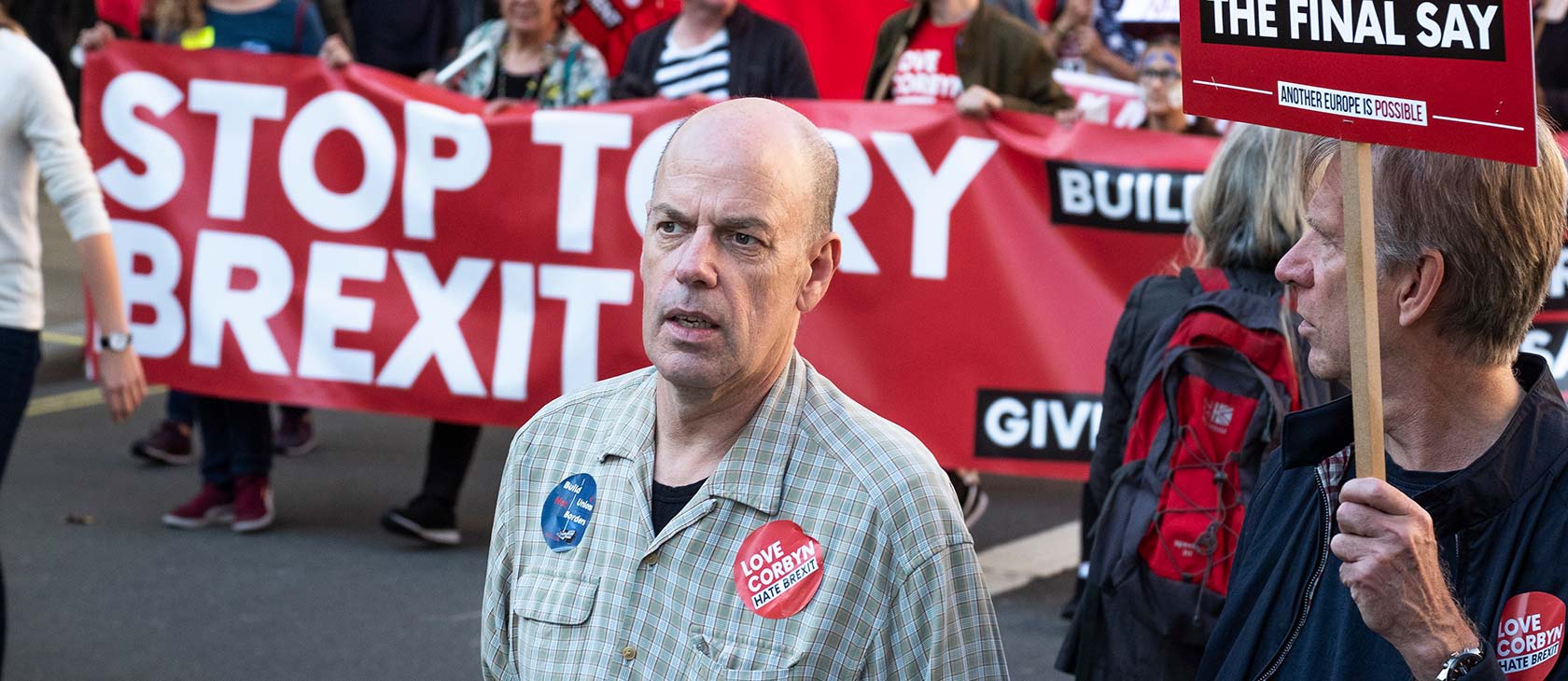Not every European headline makes it across the Atlantic, but the intense domestic debate now blazing in the United Kingdom over the nation’s future relationship with the European Union has surely come to the attention of even casual observers. Brexit has been a regular part of the news cycle for three years now. Fifty-two percent of Britons who went to the polls on June 23, 2016, for an unprecedented national referendum voted to leave the European Union. Several months later then-Prime Minister Theresa May initiated the formal withdrawal process after the UK Parliament passed legislation empowering her to do so. For the past three years Brexit has dominated British and European news cycles.
Yet there is still much uncertainty about what the twice-extended withdrawal date of October 31 will hold. What is certain is that the British public is as fractured as the Parliament is deeply divided. Given that this is primarily a UK domestic issue, and at its most broad a European issue, should Americans even be concerned?
How can we best structure civil society in order to guarantee peace and ensure individual liberties?
Yes, absolutely. It is not just that Americans should be generically concerned with the stability of one of the world’s largest economies, or the fate of a nation with which we share a special relationship, or even that Brexit negotiations seem to include the possibility of new trade agreements between our nations. All of these are true and quite important, but at the heart of this entire debate is a much more fundamental question -- how can we best structure civil society in order to guarantee peace and ensure individual liberties?
The answer to this question according to some lies in supranational political arrangements like the European Union with many stated goals that are unquestionably laudable. For almost all Americans the most fundamental social and political questions at play when discussing the EU are foreign to our experience. Most Europeans are living in cities that are ancient but have been rebuilt time and again as war ravaged the continent, the last of which is in the living memories of the continent’s oldest citizens. The United States has enjoyed a sustained domestic peace since the close of the American Civil War in 1865, and was never at risk of Soviet tanks rolling across its borders during the Cold War. In pursuit of peace, stability, and economic prosperity, post-World War II Europeans birthed the European Union.
But does the EU truly provide the political, cultural, and social vehicle to achieve the goals that it seeks? In a word, no. Each of the 28 member states has ratified the international agreements that cede a portion of their national sovereignty to a centralized authority. Proponents of the EU describe it as an innovation -- a political form unique in thousands of years of human history. The reality, however, is that the EU fits quite comfortably within the definition of “empire.” Its geographic and jurisdictional expansion may not have come through war, but Europe has never been at its most stable when its citizens have been governed by a few distant authorities, as is increasingly the case in Europe today.
What emerged quite imperfectly from the politically chaotic Middle Ages and the fracture of Christendom in the wake of the Protestant Reformation was the nation-state. The Peace of Westphalia brought an end to bloody religious wars and ushered in a new international order grounded in sound reason and the moral underpinnings of natural law doctrine. What resulted was unparalleled prosperity and peace on the European continent. There were, of course, post-Westphalian wars and the imperfect execution of lofty ideals regarding personal liberty and social equality, but this system of nation-states provided predictability with regard to governance, created space for the rule of law and for institutions of justice to mature, and largely grouped together people who shared histories, languages, cultures, and religious expressions. The powers of the state were exercised by those in greater proximity to the people they governed with much greater popular accountability.
The one thing that the EU cannot afford is a prosperous United Kingdom outside of its treaties
Brexit presents the possibility of returning to at least one nation, and possibly many others, all of the functions of the state ceded away from local seats of power to a distant one that allows even more distant leaders and populations not only a say, but a veto in matters effecting local questions. In Europe, the momentum appears to be in favor of the European Union, even if there are rumblings of other anti-EU movements around the continent. So, the one thing that the EU cannot afford is a prosperous United Kingdom outside of its treaties. But the prospects for a prosperous newly independent UK look good as long as the nation is free to govern itself without hostility or attempts to frustrate its forward progress by the EU post-Brexit. At the very least the nation’s domestic failures will be its own rather than the result of the political and economic agendas of 27 other nations, or the economic manipulations of the European Central Bank in Frankfurt once all EU nations are required to adopt a single currency.
This is not to say that there is no place for international cooperation. On the contrary a supranational organization in Europe could do a great deal of good on many fronts. Europe, for example, would be the single largest purchaser of energy in the world if it did so as a block, but it currently does not. In fact, there are still EU nations in the East dependent upon Vladimir Putin’s Russia for energy, which seems like just the type of problem the EU should be able to solve. The international cooperation that could bring the greatest good is the type that would be wholly voluntary and respect national sovereignty. The scope of the cooperation would be narrow and concrete, so agreeing to cooperate with regard to energy policies would not obligate any nation to cooperate with regard to agricultural ones, for example.
For now Americans can enjoy the luxury of watching from a distance the political mess in the UK surrounding Brexit. But it is clear that the one political form that has proven to produce peace, stability, and prosperity -- the form that provided fertile ground for the maturation of the rule of law and has been the basis of nearly 400 years of (very imperfectly accessible) economic growth -- is presently under attack. Even if the Brexiteers led by Prime Minister Boris Johnson do prevail, and the popular will expressed more than three years ago in the referendum on EU membership is finally honored, the attack won’t end. America and the world need the nation-state because we need the cultivated fruit that only the nation-state has proven consistently to provide.














